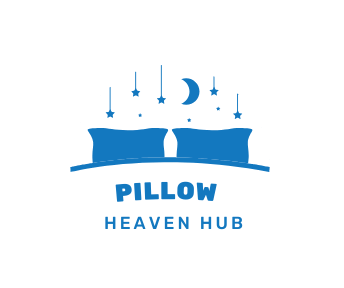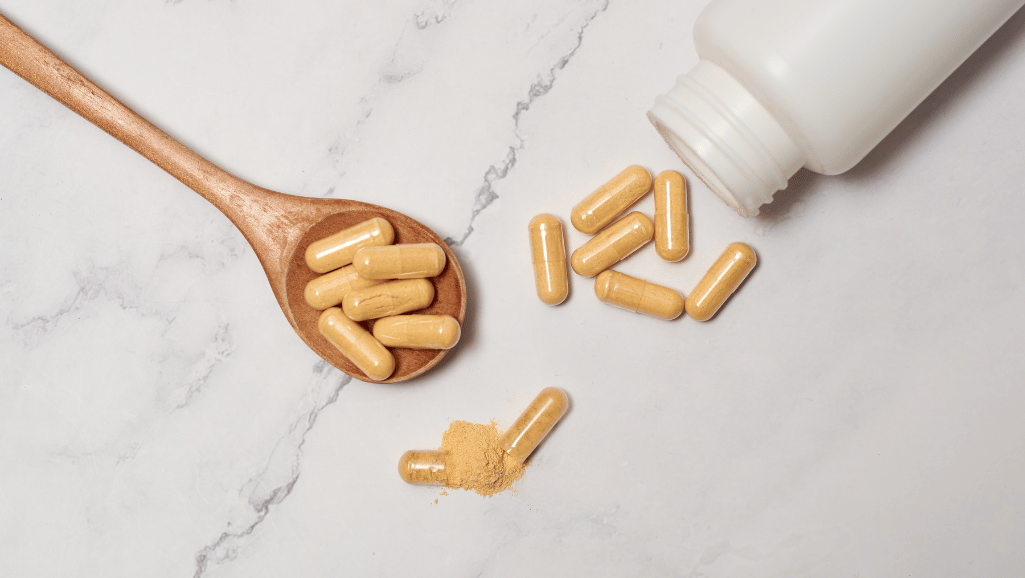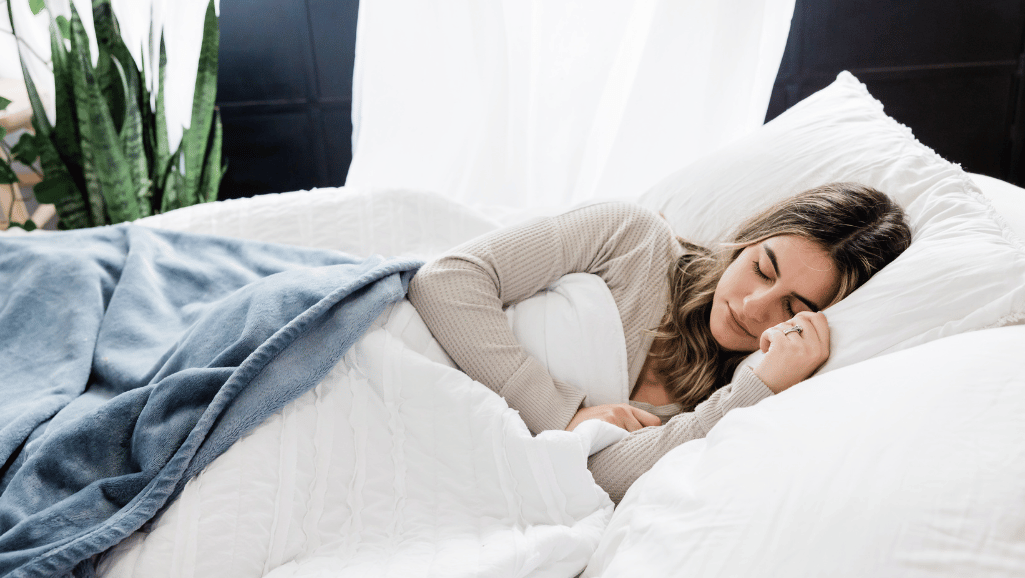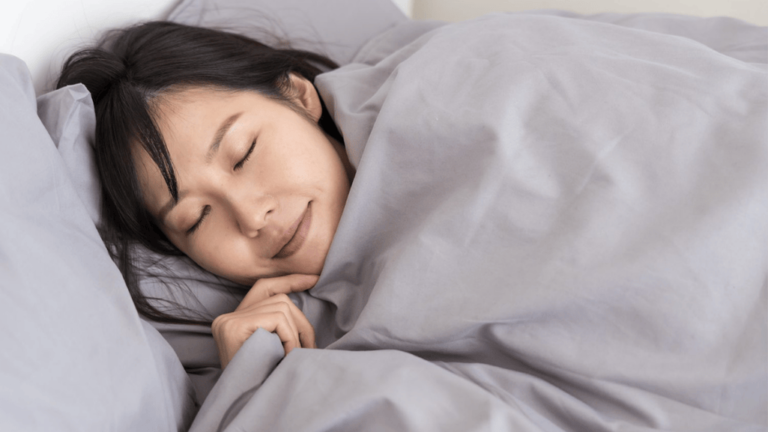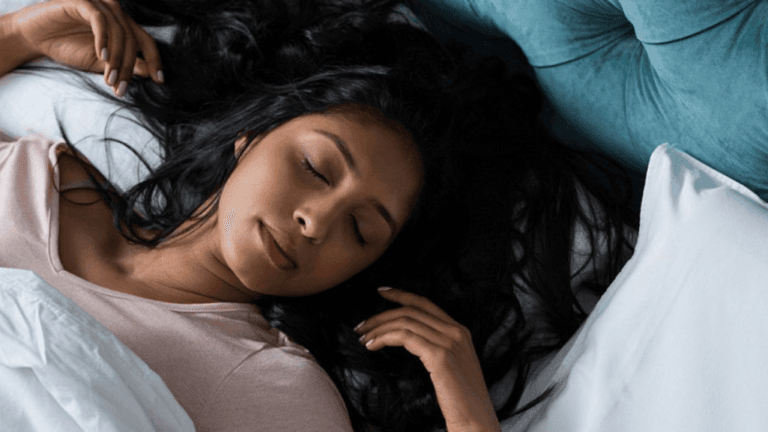If you’re among the nearly half of Americans who struggle with sleep-related issues, you may be seeking a natural solution to help you drift off to dreamland. Natural sleep aids are over-the-counter supplements designed to help you fall asleep faster and stay asleep throughout the night. These supplements are often plant-based, derived from vitamins or minerals already present in our diets, or supplemental amounts of substances produced by the body.
Many people prefer natural sleep supplements because they tend to have fewer side effects compared to prescription sleep medications. They also appeal to those who prefer natural products or are concerned about the addictive potential of prescription sleep aids. Herbal teas, tinctures, and other supplements for sleep may provide the gentle nudge you need to slide into slumber.
However, it’s crucial to consult with your doctor before incorporating any new supplements into your routine, even if they are natural. Natural sleep aids can still cause side effects or interact with your existing medications, so it’s essential to proceed with caution and under the guidance of a healthcare professional.
Key Takeaways:
- Nearly half of Americans experience sleep-related issues
- Natural sleep aids are often plant-based or derived from vitamins, minerals, or substances produced by the body
- Natural sleep supplements tend to have fewer side effects than prescription sleep medications
- Herbal teas, tinctures, and other supplements may help improve sleep quality
- Always consult with a doctor before starting any new sleep aids, even if they are natural
Understanding Natural Sleep Aids
In today’s fast-paced world, getting a good night’s sleep has become a luxury for many. With over 60 million Americans suffering from poor sleep quality, it’s no wonder that people are turning to natural sleep aids for relief. These supplements have gained popularity as a safe and effective alternative to prescription sleep medications, which can often come with unwanted side effects.
What Are Natural Sleep Supplements?
Natural sleep supplements are derived from herbal and botanical sources, aiming to promote relaxation and improve sleep quality. Some of the most common natural sleep aids include melatonin supplements, valerian root, magnesium, and chamomile tea. These supplements work by targeting various aspects of the sleep-wake cycle, such as reducing anxiety, promoting muscle relaxation, and regulating the body’s internal clock.
It’s important to note that natural sleep aids are classified as dietary supplements, which means they are not as strictly regulated as medications by the Food and Drug Administration (FDA). While many natural supplements are generally considered safe, it’s always best to consult with your doctor before starting any new supplement regimen, especially if you have pre-existing health conditions or are taking other medications.
Benefits of Natural Sleep Aids
Natural sleep aids offer a variety of benefits for those struggling with sleep issues. Some of the key advantages include:
- Improved sleep quality and duration
- Reduced time to fall asleep
- Fewer side effects compared to prescription sleep medications
- Potential to address underlying causes of sleep disturbances, such as anxiety or mineral deficiencies
- Suitable for long-term use, as they are less likely to cause dependence or tolerance
Studies have shown that melatonin supplements, in doses of 3–10 mg, can improve daytime sleep quality and duration, particularly for individuals with disrupted sleep cycles. Valerian root, in doses of 300–600 mg, may also improve sleep quality and sleep disorder symptoms, although more research is needed to confirm its efficacy.
| Sleep Aid | Potential Benefits | Recommended Dosage |
|---|---|---|
| Melatonin | Improves sleep quality and duration | 3–10 mg |
| Valerian Root | May improve sleep quality and sleep disorder symptoms | 300–600 mg |
| Magnesium | May reduce time to fall asleep | 225–729 mg daily, not exceeding 350 mg without professional advice |
Around 20% of adults experience occasional symptoms of insomnia.
While natural sleep aids can be effective, it’s important to remember that they are not a cure-all for sleep problems. Adopting healthy sleep habits, such as maintaining a consistent sleep schedule, creating a relaxing bedtime routine, and avoiding caffeine and electronic devices before bed, should also be a priority for those seeking to improve their sleep quality.
Melatonin: The Sleep Hormone
Melatonin, a hormone produced by the pineal gland in the brain, is a crucial regulator of our sleep-wake cycle. This natural sleep aid has gained popularity as one of the most effective sleep-promoting vitamins available. As we explore the benefits and potential drawbacks of melatonin supplements, it becomes clear why so many people turn to this sleep hormone for a better night’s rest.
How Melatonin Regulates Sleep
Our bodies naturally produce melatonin in response to changes in light exposure throughout the day. As darkness falls, melatonin levels rise, signaling to the body that it’s time to prepare for sleep. Conversely, exposure to light suppresses melatonin production, helping us feel more alert and awake. However, factors such as age, shift work, and excessive screen time can disrupt this delicate balance, leading to difficulties falling or staying asleep.
Melatonin Supplements for Sleep Difficulties
For those struggling with sleep issues, melatonin supplements offer a potential solution. Research has shown that taking melatonin can help reduce the time it takes to fall asleep, particularly for individuals with delayed sleep-wake phase disorder or insomnia. Additionally, evidence suggests that melatonin may improve symptoms of jet lag and reduce evening confusion and restlessness in people with Alzheimer’s disease.
According to a survey by the Centers for Disease Control and Prevention, approximately 3 million Americans used melatonin sleep aids in 2012. Sleep experts typically recommend taking 1 to 3 milligrams of melatonin two hours before bedtime for optimal results. While melatonin is generally considered safe for short-term use, it’s essential to consult with a healthcare provider before starting any new supplement regimen.
Precautions and Side Effects
Although melatonin is a natural sleep aid, it can cause side effects such as headache, dizziness, nausea, and drowsiness in some individuals. Additionally, melatonin may interact with various medications, including anticoagulants, anticonvulsants, blood pressure drugs, and diabetes medications. Pregnant or breastfeeding women, as well as those with autoimmune disorders, seizure disorders, or depression, should avoid melatonin supplements unless directed by a healthcare provider.
As with any sleep-promoting vitamin or supplement, it’s crucial to use melatonin responsibly and under the guidance of a medical professional. By understanding the potential benefits and risks associated with this popular sleep aid, you can make an informed decision about whether melatonin is right for you on your journey to better sleep and improved overall health.
Cannabinoids: THC and CBD for Sleep
As the legalization of medical and recreational cannabis continues to spread across states, interest in the sleep-promoting properties of the cannabis plant and its compounds, known as cannabinoids, has grown. Two of the most well-known cannabinoids are delta-tetra-hydrocannabinol (THC) and cannabidiol (CBD). According to research, out of more than 100 cannabinoids in cannabis, these two primary compounds have been extensively studied for their potential benefits on sleep quality.
CBD, the second most abundant compound in the cannabis sativa plant, has gained popularity as a natural sleep aid due to its calming effect on the nervous system and its potential to alter mood by affecting the serotonin system. Unlike THC, CBD does not have psychoactive properties and does not lead to potential dependency or risk of abuse. Preliminary research suggests that CBD may help with sleep disorders, anxiety, chronic pain, and epilepsy, although more extensive research is needed to confirm these findings.
Early studies indicate that CBD may reduce anxiety levels and improve sleep in individuals with anxiety disorders. In one study, nearly 80% of participants using CBD for anxiety reported lower anxiety levels, and over 65% experienced improved sleep within a month. CBD may also help people with insomnia and restless leg syndrome. Preliminary findings suggest that CBD may reduce the frequency of abnormal nerve firings in restless leg syndrome and improve both the quality and quantity of sleep for people with circadian rhythm disorders.
While THC is known for its psychoactive effects, it may also offer sleep benefits. Some natural sleep aids contain natural or synthetic cannabinoids, including THC and CBD. Studies suggest that THC and CBD, alone or in combination, help some people fall asleep, stay asleep, and enjoy higher quality sleep. These natural sleep aids may be particularly beneficial for people experiencing sleep difficulties due to chronic pain, multiple sclerosis, post-traumatic stress disorder, Alzheimer’s disease, or Parkinson’s disease.
It is important to note that the effects of cannabinoids can vary significantly based on product type and dosage. Additionally, marijuana and products containing THC have the potential to create dependence, and withdrawal from them can aggravate sleep problems. Cannabinoids also have the potential to react with many other medications and should not be combined with sedative medication. Sleep aids containing cannabinoids may not be suitable for people with glaucoma, liver disease, and Parkinson’s disease.
When considering using cannabinoids as a natural sleep aid, it is essential to choose high-quality products from reputable sources. Look for products that have been full-panel lab-tested by ISO 17025–accredited laboratories to ensure quality and purity. Keep in mind that cannabis plants with less than 0.3% THC are classified as hemp and have been removed from the controlled substance list since 2018. However, it is crucial to check your local laws and regulations regarding the use and purchase of cannabis products.
While research on the effectiveness of cannabinoids for sleep is still in its early stages, many people have reported positive experiences using CBD and THC to improve their sleep quality. As with any sleep aid, it is essential to consult with your doctor before incorporating cannabinoids into your sleep routine, especially if you have underlying health conditions or are taking other medications. With the right guidance and high-quality products, cannabinoids like CBD and THC may offer a natural alternative to traditional sleep aids, promoting better sleep and overall well-being. Incorporating other natural sleep aids, such as valerian root, alongside cannabinoids may further enhance their sleep-promoting effects.
Magnesium: The Mineral for Relaxation
Magnesium, a vital mineral that plays a crucial role in numerous bodily functions, has gained attention for its potential to enhance sleep quality and promote relaxation. As more people seek natural solutions to improve their sleep, magnesium has emerged as a promising option. This essential mineral not only supports overall health but also contributes to a restful night’s sleep.
Magnesium’s Role in Sleep Quality
Research suggests that magnesium may promote better sleep by reducing cortisol levels and increasing melatonin production. Studies have found a connection between magnesium deficiency and decreased melatonin, highlighting the importance of maintaining adequate magnesium levels for optimal sleep. Magnesium helps regulate neurotransmitters in the central nervous system, leading to improved sleep quality by promoting relaxation and calmness.
According to the Sleep Foundation, magnesium supplementation might relax muscles, aiding in falling asleep and staying asleep for those with Restless Leg Syndrome (RLS). A study published in 2019 found that a combination of magnesium, melatonin, and vitamin B complex improved sleep quality for people with insomnia, further emphasizing the potential of magnesium as a natural sleep aid.
“Magnesium is said to help calm the central nervous system, reduce anxiety and depression symptoms, and contribute to a good night’s sleep.”
Magnesium-Rich Foods and Supplements
Incorporating magnesium-rich foods into your diet is an excellent way to ensure you’re getting enough of this essential mineral. Some of the best dietary sources of magnesium include:
- Nuts and seeds (almonds, pumpkin seeds, sunflower seeds)
- Leafy greens (spinach, kale, Swiss chard)
- Whole grains (quinoa, brown rice, oats)
- Legumes (black beans, kidney beans, chickpeas)
- Dairy products (yogurt, milk)
- Fruits (avocados, bananas)
For those who struggle to meet their magnesium needs through diet alone, supplements can be a convenient option. However, it’s essential to consult with a healthcare provider before starting any new supplement regimen. Women need at least 310 milligrams (mg) of magnesium per day, while men require 400 mg. Pregnant individuals need 350–400 mg, and breastfeeding individuals need 310–360 mg per day.
When selecting a magnesium supplement, consider factors such as bioavailability and dosage. While magnesium supplements are generally considered safe, excessive intake can lead to side effects such as abdominal cramps, diarrhea, irregular heartbeat, low blood pressure, nausea, and weakness. Always adhere to the recommended daily dosages to prevent health complications.
In addition to its role in sleep, magnesium offers a range of other health benefits. A diet rich in magnesium may lower the risk of type 2 diabetes, while magnesium intake may also help lower blood pressure in individuals with hypertension. Those deficient in magnesium are more prone to migraine headaches, and studies suggest that magnesium supplements can help reduce migraine symptoms. Magnesium may also improve bone density and reduce the risk of osteoporosis by affecting concentrations of vitamin D and parathyroid hormone involved in bone health.
Prioritizing magnesium intake through a balanced diet and, if necessary, supplementation can contribute to better sleep quality and overall well-being. As with any dietary change or supplement regimen, it’s crucial to consult with a healthcare provider to determine the best approach for your individual needs. By harnessing the power of magnesium, you can take a step towards more restful nights and improved health.
L-Theanine: The Calming Amino Acid
L-theanine, an amino acid naturally found in tea leaves, is gaining popularity as a natural sleep aid. As the second-most widely consumed beverage after water, tea contains about 25 to 60 milligrams of L-theanine per serving, with green tea generally having slightly higher levels than black tea. This soothing compound is now available in various supplemental forms, including liquids, pills, and ointments, making it easier than ever to harness its calming effects.
L-Theanine’s Effects on Stress, Anxiety, and Sleep
Research suggests that L-theanine can help reduce stress and anxiety, promote relaxation, and improve sleep quality. A 2019 study found that healthy adults who took L-theanine for four weeks experienced a decrease in stress-related symptoms and enhanced mental clarity, including improved verbal fluency and focus. While L-theanine may not necessarily help you fall asleep faster, it can enhance sleep quality by reducing nighttime awakenings, making it a potential aid for those with sleep-maintenance insomnia.
A 2018 study reported greater sleep satisfaction after taking 450–900mg of L-theanine daily for 8 weeks.
The FDA considers L-theanine generally safe, with doses up to 250 milligrams per serving recognized as safe. Most healthy adults can safely take between 200 mg and 500 mg daily, with 500 mg being the recommended upper limit. L-theanine supplements are typically available in 200 mg tablets, making it easy to find the right dose for your needs.
Combining L-Theanine with Other Sleep Aids
Studies suggest that L-theanine can help counteract the negative effects of caffeine on sleep. Combining L-theanine with magnesium may also enhance its sleep-promoting benefits. Unlike many other sleep aids, L-theanine does not typically cause daytime drowsiness, making it a preferred choice for those seeking improved sleep without compromising daytime alertness.
While L-theanine is generally safe, it’s essential to be aware of potential side effects and interactions. Reported side effects may include:
- Headaches
- Dizziness
- Nausea
- Jitteriness
- Irritability
- Diarrhea
L-theanine may also interact with certain medications and supplements, such as:
- High blood pressure medications
- Blood pressure-lowering supplements
- ADHD stimulant medications
- Caffeine-containing supplements
Although L-theanine is considered safe for most people, including children with ADHD who may experience improved sleep and behavior with daily use, it’s crucial to consult your healthcare provider before starting any new supplement regimen. This is especially important if you have underlying health conditions, are taking medications, or are pregnant or breastfeeding, as limited research exists on L-theanine’s safety in these populations.
| L-Theanine Source | Average Content per Serving |
|---|---|
| Green Tea | 25-60 mg |
| Black Tea | 25-60 mg (slightly lower than green tea) |
| L-Theanine Supplements | 200 mg (typical tablet size) |
Glycine: Supporting Circadian Rhythms
Glycine, a simple yet powerful amino acid, plays a crucial role in promoting restful sleep by supporting our body’s natural circadian rhythms. This tiny molecule, found in protein-rich foods like meat, dairy, and legumes, has been shown to improve sleep quality and reduce daytime fatigue when taken as a supplement before bedtime.
Research suggests that glycine enhances sleep by facilitating a slight decrease in core body temperature, a physiological change that naturally occurs as we prepare to drift off into slumber. This cooling effect, linked to increased cutaneous blood flow, creates an optimal environment for falling asleep and maintaining uninterrupted sleep throughout the night.
Glycine’s sleep-promoting properties extend beyond its impact on body temperature. Studies have revealed that glycine supplementation can lead to an increase in serotonin levels, a neurotransmitter that plays a vital role in regulating sleep-wake cycles. By stabilizing sleep states and shortening the time it takes to enter deep, slow-wave sleep, glycine helps to ensure a more restorative and refreshing night’s rest.
While the body naturally produces glycine and obtains it through dietary sources, supplementation has shown promise as a safe and effective way to enhance sleep quality. Most people consume between 3 to 5 grams of glycine per day from their diet, but studies have demonstrated that doses as low as 3 grams taken before bedtime can yield significant sleep benefits without causing adverse side effects.
| Glycine Dosage | Effects on Sleep |
|---|---|
| 3 grams per day | Improves sleep quality, reduces daytime sleepiness and fatigue |
| Up to 31 grams per day | Studied for safety, with no reported side effects |
| 0.8 grams per kg of body weight | Highest dose studied for safety, equivalent to about 60 grams for a 75 kg person |
It’s important to note that while glycine is generally considered safe, excessive amounts can potentially cause nausea or other adverse effects. As with any dietary supplement, it’s always best to consult with a healthcare provider before incorporating glycine into your sleep regimen, especially if you have pre-existing medical conditions or are taking medications that may interact with GABA supplements.
Harnessing the power of glycine to support your body’s natural circadian rhythms can be a game-changer for those seeking a more restful, rejuvenating night’s sleep. By creating an internal environment conducive to deep, uninterrupted slumber, this tiny amino acid offers a natural and effective way to enhance sleep quality and wake up feeling refreshed and ready to take on the day.
Valerian Root: The Herbal Sleep Aid
Valerian root, derived from the perennial valerian plant (Valeriana officinalis), has been used as a natural sleep aid for centuries. Its roots and stems contain compounds believed to promote relaxation and improve sleep quality. Valerian root supplements are available in various forms, including capsules, tinctures, and teas.
How Valerian Root Promotes Sleep
Valerian root is thought to work by increasing levels of gamma-aminobutyric acid (GABA) in the brain, a neurotransmitter that promotes relaxation and reduces anxiety. Several studies have investigated the effectiveness of valerian root for improving sleep:
- Multiple studies suggest that valerian root may reduce the time it takes to fall asleep and improve overall sleep quality.
- Researchers analyzed 60 studies spanning nearly 40 years and concluded that valerian root can likely improve sleep and reduce anxiety in many individuals.
- Some studies indicate that regular use of valerian root for two or more weeks may be necessary to experience significant improvements in sleep.
However, it’s important to note that not all studies have found valerian root to be effective, and some results have been statistically insignificant. More research is needed to fully understand its effects on sleep.
Dosage and Precautions
While there are no official guidelines for valerian root dosage, most research studies suggest taking 300 to 600 milligrams once per day to improve sleep. It is generally considered safe for most adults when taken regularly for up to 28 days, with no significant problems reported.
However, valerian root may cause side effects in some individuals, such as:
- Headache
- Upset stomach
- Uneasiness
- Heart rate changes
- Insomnia
- Drowsiness
- Dry mouth
- Vivid dreams
Certain groups should exercise caution or avoid valerian root altogether:
- Pregnant or nursing women and children under 3 years old should not take valerian root due to insufficient safety data.
- People taking sedatives, anti-anxiety medications, or sleep medications should avoid valerian root due to the risk of interactions.
- Individuals with liver disease should consult their healthcare provider before taking valerian root.
The American Academy of Sleep Medicine recommends against using valerian root for chronic insomnia due to lack of sufficient research on its safety or efficacy.
As with any herbal supplement, it is essential to consult with a healthcare provider before starting valerian root, particularly if you have underlying health conditions or are taking other medications. They can help assess the safety and potential interactions of valerian root with your current treatment plan.
Other Natural Sleep Supplements
While melatonin supplements are a popular choice for those seeking better sleep, there are several other natural sleep aids worth considering. These supplements work in various ways to promote relaxation, reduce anxiety, and improve sleep quality, offering a gentler alternative to prescription sleep medications.
Chamomile Tea
Chamomile tea has long been treasured for its calming properties, making it an ideal bedtime beverage. The apigenin content in chamomile, a powerful antioxidant, interacts with specific brain receptors to induce relaxation and sleepiness. Research suggests that regularly consuming chamomile tea can lead to improved sleep quality and duration.
To reap the benefits of chamomile, try sipping a warm mug of the tea about an hour before bed. Alternatively, chamomile supplements containing 200-270 milligrams of extract can be taken twice daily. As with any supplement, it’s essential to consult with your healthcare provider to ensure chamomile is safe for you, especially if you are taking any medications.
Passionflower
Passionflower, a climbing vine native to the Americas, has been used for centuries to alleviate anxiety and promote better sleep. The plant contains GABA, a neurotransmitter that plays a crucial role in regulating mood and inducing sleep. Studies have shown that drinking passionflower tea before bed can lead to improved sleep quality and duration.
While passionflower is generally considered safe for short-term use, it’s essential to talk to your doctor before incorporating it into your sleep routine. Passionflower may interact with certain medications and should be used cautiously by pregnant or breastfeeding women.
Tart Cherry Juice
Tart cherries are a natural source of melatonin, the hormone that regulates our sleep-wake cycle. Drinking tart cherry juice has been shown to increase melatonin levels in the body, leading to improved sleep efficiency and duration. It’s important to note that these benefits are specific to tart cherries, not the sweeter varieties commonly found in grocery stores.
To incorporate tart cherry juice into your bedtime routine, drink a cup about an hour or two before sleep. Be mindful of the sugar content in some tart cherry juices, opting for unsweetened varieties when possible.
| Supplement | Benefits | Dosage |
|---|---|---|
| Chamomile Tea | Promotes relaxation and improves sleep quality | 1 cup before bed or 200-270 mg extract twice daily |
| Passionflower | Reduces anxiety and enhances sleep | 1 cup of tea before bed |
| Tart Cherry Juice | Increases melatonin levels and improves sleep efficiency | 1 cup 1-2 hours before bed |
When exploring natural sleep supplements, it’s crucial to approach them with the same caution and care as you would with any other medication. Always consult with your healthcare provider to determine the best course of action for your individual needs and to ensure that these supplements won’t interfere with any existing medications or health conditions.
Supplements for Sleep: Choosing the Right One
Selecting the best natural sleep aids can be a daunting task, given the wide variety of supplements available in the market. It’s crucial to approach this decision with careful consideration, taking into account your specific sleep issues, overall health, and any potential interactions with existing medications.
Factors to Consider When Selecting a Sleep Aid
When choosing a supplement for sleep, it’s essential to evaluate your individual needs. Are you struggling with falling asleep, staying asleep, or both? Do you experience any underlying health conditions that may be contributing to your sleep difficulties? These factors can help guide you towards the most suitable natural sleep aid.
It’s also important to consider the potential side effects and interactions of different supplements. For example, melatonin may cause drowsiness, dizziness, or nausea in some individuals, while valerian root may interact with certain medications. By understanding these factors, you can make a more informed decision when selecting a natural sleep aid.
Consulting with Your Doctor
Before starting any new supplement regimen, it’s always wise to consult with your healthcare provider. Your doctor can provide personalized recommendations based on your medical history, current medications, and specific sleep concerns. They can also help you determine the appropriate dosage and duration of use to ensure safe and effective results.
Remember, natural sleep aids are not a long-term solution for chronic sleep problems. If your sleep difficulties persist or worsen despite using supplements, it’s essential to work with your doctor to identify and address the underlying causes. In some cases, lifestyle changes, such as maintaining a consistent sleep schedule, creating a relaxing bedtime routine, and improving sleep hygiene, may be more effective than relying on supplements alone.
Around one-third of U.S. adults do not regularly achieve the recommended seven to nine hours of sleep per night, making the search for effective sleep solutions a priority for many.
By carefully considering your individual needs, potential side effects, and seeking guidance from your healthcare provider, you can make an informed decision when choosing a natural sleep aid. With the right approach and a commitment to healthy sleep habits, you can improve your sleep quality and overall well-being.
Conclusion
Navigating the world of natural sleep aids and supplements for sleep can be overwhelming, but with the right information and guidance, you can find the perfect solution to support your journey towards better rest. From the sleep-regulating hormone melatonin to calming herbal remedies like valerian root and chamomile tea, there are numerous options available to promote relaxation and improve sleep quality. Magnesium, a vital mineral for overall health, has also shown promise in enhancing sleep when taken as a supplement or through magnesium-rich foods.
Research has shed light on the potential benefits of various sleep supplements. The protmorpheus study, a randomized double-blind controlled trial, investigated the effect of proteins with different tryptophan/large neutral amino acid ratios on sleep in adolescents. Additionally, a meta-analysis of 31 randomized controlled trials revealed that supplementing amino acids, melatonin, and vitamin D led to significant improvements in subjective sleep quality. While more research is needed, these findings offer hope for those seeking natural ways to optimize their sleep.
As you explore the world of natural sleep aids, it’s essential to approach them with caution and consult with your healthcare provider before starting any new supplement regimen. By understanding the potential benefits and risks associated with each option and combining them with healthy lifestyle habits, such as maintaining a consistent sleep schedule and creating a relaxing bedtime routine, you can take meaningful steps towards achieving the restful, rejuvenating sleep you deserve. Remember, while supplements can be a helpful tool, they should not be relied upon as a long-term solution for chronic sleep issues. By addressing the root causes of sleep disturbances and making lasting changes, you can unlock the door to better sleep and enhanced overall well-being.
